SEMESTER: THE OTHER - MATERIALS PAGE
Overview – Jungian and Post-Jungian Clinical Concepts Course
Welcome to Jungian and Post-Jungian Clinical Concepts! We are pleased to have you join us in this 16 module (4 semesters) exploration of key Jungian concepts and their clinical application.
Carli Castellani is your program coordinator and your guide through the course – contact her with course inquiries here: carli@appliedjung.com.
For any administrative/finance issues, contact jess@appliedjung.com.
Each module contains the following materials:
1. Reading Pack — approximately 2-5 articles each month, selected by the module’s presenter;
2. Module Applications — reflection prompts for the module, to aid in integrating the material explored;
3. Live 60 minute lecture followed by a 30 minute Q&A discussion session on Zoom with the presenter. (dates below)
4. Recording of the live recording, posted shortly after it has taken place; and
5. A 15 question quiz, to gauge your understanding of the concepts presented (required for those completing the course for CPD credits).
Each module runs over a two week period. We email a notice, as well as post the new materials on the Facebook forum on that date, including the event details and joining link for the live Q&A session. The materials are also updated on this page at that time.
Complete the readings, prior to the live presentation and Q&A with the presenter.
Bring your thoughts and questions to the live Q&A discussion.
Work through the module applications, to deepen your personal experience with the module content, and explore how it may relate to your clinical practice and professional development. You are welcome to share your application work and reflections in the private Facebook forum.
Complete the short quiz by the end of the module — note this must be done directly on the CAJS website.
The private Facebook Forum is available for sharing and discussion with others in the course, as we move through each module, and we encourage your participation there. Please follow this link to join https://www.facebook.com/groups/1035394050838817/
Click on the red button below to see your questionnaire results to date.
Module 1: Live Lecture: - 6 January 2024
Imagination, body and gender in Jungian and Post-Jungian Theory.
A lesbian-south perspective on the care of gender experience as embodied imagination.
Imagination, body and gender are topics that are very much interweaved, and interact in fluid and non-fixed ways thought lifetime, although they may not seem like it at a first glimpse. We tend to see gender in binaries fixed and tied to specific body types (mostly appearances), with little room for imagination. This is because of our “sight conditions”, which are, in fact, life conditions. Lesbian-south, in this context, is not a way of naming a sexual orientation or geographical location, but a way of seeing, of positioning myself inside-outside an epistemic field: the Jungian or -more broadly- the depth psychology field. Epistemological queries from feminist thinkers will act in this presentation as a little stone thrown into still water… An undulating movement in our epistemic frameworks will open the theoretical discussion of the second part of the presentation, where -trough philosophy, art, poetry and films-, we will take a look at subjects such as: the body as a platform for imagination, “gender trouble” in Jungian theory, aspects of development of gendered feelings, gender as cultural and political artifact and embodied imagination. The last part of the presentation will focus on some clinical problems I find relevant in present times. In short, this presentation will follow the trace of my curiosity, which has led me to search for theories that collaborate in the -partial and situated- creation of meaningful and stimulating connections between analytical psychology, queer theory and decolonial thinking.
presented by Valeria Kierbel
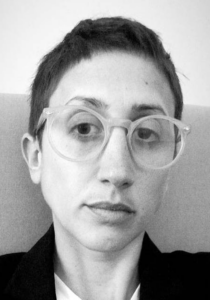 Valeria Kierbel holds a Degree in Psychology and Psychology Teaching at the National University of La Plata (UNLP/ Argentina) and is a Clinical Psychologist since 2011. She is a training candidate at SUAPA/IAAP (Uruguayan-Argentinean Society of Analytical Psychology) for Jungian Analyst and Founding member of the activist collective Lesbianas Junguianas and Fuga Magazine along with colleagues Andy Arocha (Uruguay), Fran Ruggiero (Perú) and Carolina Guíñez (Chile).
Valeria Kierbel holds a Degree in Psychology and Psychology Teaching at the National University of La Plata (UNLP/ Argentina) and is a Clinical Psychologist since 2011. She is a training candidate at SUAPA/IAAP (Uruguayan-Argentinean Society of Analytical Psychology) for Jungian Analyst and Founding member of the activist collective Lesbianas Junguianas and Fuga Magazine along with colleagues Andy Arocha (Uruguay), Fran Ruggiero (Perú) and Carolina Guíñez (Chile).
Valeria teaches Historia de la psicología y del psicoanálisis en Argentina” [“History of Psychology and Psychoanalysis in Argentina”] at the University of La Plata since 2010; and “Género y sexualidad en la psicología junguiana” [“Gender and sexualities in Jungian psychology”] at de University of Córdoba, Post-graduate certificate in Jungian Psychotherapy since 2020.
She is a teacher of the online updating course on Jungian Psychology “Géneros, sexos y feminismos: la psicología junguiana interceptada” [“Genders, bodies, feminisms: Analytical Psychology Intercepted”], since 2020. This course is carried out along with Carolina Guíñez (author of the book Ser lesbiana, un camino de individuación [Being a Lesbian, a path of individuation], RIL ed.).
This Lecture Took Place on Jan 6, 2024. The video can be viewed below.
Reading Material
Click on the links below to download your articles for this module.
Gloria Anzaldua, Chapter 4: Geographies of Selves—Reimagining Identity — From “Light in the Dark/Luz en lo Oscuro: Rewriting Identity, Spirituality, Reality (Latin America Otherwise)” – by Gloria Anzaldua, 2015, Duke University Press
Susan McKenzie: Genders and sexualities in individuation: theoretical and clinical explorations — Susan McKenzie, Journal of Analytical Psychology, 2010, 55, 91–111
Suggested Viewing:
The following films have been suggested by presenter Valeria Kierbel as recommended viewing:
In exploring imagination, body and gender in this module, metaphors regarding geography and liminal zones (in-between states, areas or “cracks”) were used, as well as the idea that gender and identity are fluid. For personal reflection on these concepts:
a) Contemplate areas in your life – including physical ones such as neighborhoods, workplaces, etc. – where you intersect with many others that may not share your cultural background, race or other factors that shape your sense of identity. What does that “map” look like? What does it sound like? Using Gloria Anzaldua’s approach, write a short prose piece or create a sketch of how you experience that “in-between” zone in your life.
b) For your clinical practice, contemplate how your clients present their gender narratives and how they embody them. Using Susan McKenzie’s approach, are there myths (or even contempary stories from films or books) that may speak to some of the issues they are navigating, such as her use of the Innana myth?
Questionnaire
Module 2: Live Lecture 20 January 2024
Is Jung Queer?
This lecture will argue that there are multiple points of queer potential in Jung’s work. Examples include his encounters with alterity in the Red Book, his valorisation of what is seemingly ‘superficial’ and ‘feminine,’ and his thoughts on the transcendent nature of sexuality. It will also look at aspects of analytical psychology that need revising so that queer and trans individuation is celebrated, and not pathologised. It will critique the obsession with the gender binary as a purportedly universal, superior, and exemplary marker of difference, as well as the arbitrary concepts of anima and animus. Jung’s Red Book, a work that was too ‘queer’ to ‘come out of the closet’ at the time it was written, can contribute to a queer Jungian epistemology that views gender, sexuality, and relationships as bio-psycho-social and mysterious. This project isn’t only about expanding Jungian discourse to enable clinical work with queer and trans patients: it has a radical potential for everyone.
presented by George TaxidIs
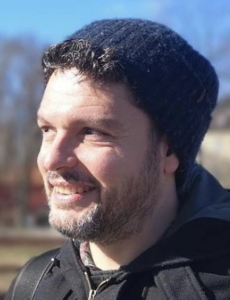 George Taxidis (pronouns he/him) is a Jungian analyst in private practice in east London, UK and a lecturer in psychotherapy and psychosocial studies at Goldsmiths, University of London. He was the co-founder of the International Queer Jungian Initiative, and is currently writing a book on queering Jungian psychology for the Routledge series Jung, Politics and Culture.
George Taxidis (pronouns he/him) is a Jungian analyst in private practice in east London, UK and a lecturer in psychotherapy and psychosocial studies at Goldsmiths, University of London. He was the co-founder of the International Queer Jungian Initiative, and is currently writing a book on queering Jungian psychology for the Routledge series Jung, Politics and Culture.
The Lecture took place on January 20, 2024. The recording and presentation slides can be found below.
Reading Material
Click on the links below to download your articles for this module.
Defacing Dionysus: The Fabrication of an Anti Transgender Myth
Nicholas S. Literski; Psychological Perspectives, 64: 360–368, 2021
# C. G. Jung Institute of Los Angeles
Update: As promised, one additional reading as follows:
My kinky shadow: the poetics of the sadomasochistic Other
Thomas, D. (2023) “My kinky shadow: the poetics of the sadomasochistic Other.” In Carter, M. & Farah, S. A. (eds) (2023) The Spectre of the Other in Jungian Psychoanalysis. Routledge.
In exploring “Is Jung Queer?” various concepts were considered, such as Jung’s encounters with his “alterity” or otherness, as illustrated and written about in his Red Book entries. For your personal reflection:
a) Where do you encounter your “otherness”, or non-conformity, in your daily life? What does that look and feel like?
b) For your clinical practice, how do your clients bring their own narratives of otherness into a therapy setting?
Questionnaire
Module 3: Live Lecture - 3 February 2024
Container-contained: Thinking with Jung about the adult couple relationship
This lecture takes as its basis Jung’s 1925 paper ‘Marriage as a Psychological Relationship’ and explores the way in which the adult couple relationship can be either a spur or a hindrance to personal development. It looks at issues such as partner choice, the impact of familiarity and boredom, the lure of infidelity, and the nature of unconscious projections and identifications to tease out the role of commitment to another in an individual’s maturation. It draws on developments within the British Tavistock Tradition that have tried to understand the different functions that a couple and their relationship have in psychological health and it uses clinical examples from analytic couple therapy to show what this kind of thinking means in practice. The lecture highlights how couple relationships have a key role to play in Individuation while pointing out that this is by no means a given – they can be part of an ‘anti-individuation’ pact – and the lecture explores just how demanding a truly “psychological relationship” in Jung’s terms can be.
presented by David Hewison
 Dr David Hewison is a Jungian Training Analyst from the Society of Analytical Psychology in London, UK. He holds a Doctorate in Couple Psychoanalytic Psychotherapy and has recently retired from Tavistock Relationships after 26 years of work. A Consultant Couple Psychoanalytic Psychotherapist and psychotherapy researcher, he developed and led a research-based post-qualifying doctoral programme in Couple Psychotherapy as well as running and teaching on the organisation’s 4-year clinical training in Couple Psychoanalytic Psychotherapy. He developed a model of couple therapy that is used in the UK National Health Service as a treatment for depression and has published many papers on couple and individual psychoanalysis and Jungian analysis, with a particular interest in creativity. He teaches and lectures internationally and has a part-time private practice of clinical work and supervision.
Dr David Hewison is a Jungian Training Analyst from the Society of Analytical Psychology in London, UK. He holds a Doctorate in Couple Psychoanalytic Psychotherapy and has recently retired from Tavistock Relationships after 26 years of work. A Consultant Couple Psychoanalytic Psychotherapist and psychotherapy researcher, he developed and led a research-based post-qualifying doctoral programme in Couple Psychotherapy as well as running and teaching on the organisation’s 4-year clinical training in Couple Psychoanalytic Psychotherapy. He developed a model of couple therapy that is used in the UK National Health Service as a treatment for depression and has published many papers on couple and individual psychoanalysis and Jungian analysis, with a particular interest in creativity. He teaches and lectures internationally and has a part-time private practice of clinical work and supervision.
The lecture took place on February 3, 2024. The recording can be watched below.
Reading Material
Click on the links below to download your articles for this module.
Jung, C. G. – Marriage as a Psychological Relationship
JUNG, C. G. 1925. Marriage as a Psychological Relationship. The Development of Personality CW17
1954. London: Routledge and Kegan Paul.
Hewison, D. – ‘Oh rose thou art sick!’ Anti-individuation forces in the film American Beauty
HEWISON, D. 2003. ‘Oh rose thou art sick!’ Anti-individuation forces in the film American Beauty
Journal of Analytical Psychology, 48, 683-704.
In this module, it was suggested the adult couple relationships may offer a key emotional area for the indivdiuation process, or even an arena for an “anti-individuation” agreement to emerge. For your personal reflection:
a) Identify a relationship you have had as an adult — not necessarily a romantic or spousal one, it could be a friend, colleague, co-worker or such — where conflict encouraged your own growth at some point, or to face something you had been avoiding. Contemplate both the internal experiences you were having as well as the external ones, and what those looked like for you and the other.
b) In relationship to your clinical practice, what “anti-individuation” defenses or agreements are you currently encountering in your clients? These could be their own, and/or ones they have formed with others. What relationships are supporting your clients in their growth?
Questionnaire
Module 4 Live Lecture - 17 February 2024
Ecopsychology
Jung is one of the few psychotherapists who has written extensively about the relationship between inner and outer nature. Through growing up in the Swiss Alps he knew about encounters with the numinous and the power of nature to heal the human soul. He warned of the consequences of our separation from the rest of nature and of taking from the earth with no reciprocity or respect. The result is a loss of soul and a rampant industrial growth culture trying to fill the hole. In this webinar we will explore how these issues come into our work as therapists. What are the archetypal forces at play? Is there a link between global crisis and symptoms such as depression, addictions, anxiety? Do clients talk about their concerns about the world, e.g. climate change, and if so how do we help them explore their anxieties? What are their dreams saying?
presented by Mary-Jayne Rust
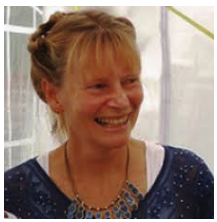 Mary-Jayne Rust is an eco-psychotherapist, inspired by trainings in art therapy, feminist psychotherapy and Jungian analysis. Journeys to Ladakh (on the Tibetan plateau) in the early 1990’s alerted her to the seriousness of the ecological crisis, and its cultural, economic and spiritual roots. Alongside her therapy practice she runs courses and lectures internationally on ecopsychology, a growing field of inquiry into the psychological dimensions of ecological crisis. Her publications can be found on www.mjrust.net, including Vital Signs: Psychological Responses to Ecological Crisis. Eds M.J. Rust & Nick Totton. Karnac, London 2011. She weaves together the ecological, psychological, political, and spiritual aspects of the earth and its people, with a keen interest in the differences between indigenous and western worldviews, and how we might enable ancient and modern to live together today. She grew up beside the sea and is wild about swimming. Now she lives and works beside ancient woodland in North London. For more information visit her site http://www.mjrust.net/.
Mary-Jayne Rust is an eco-psychotherapist, inspired by trainings in art therapy, feminist psychotherapy and Jungian analysis. Journeys to Ladakh (on the Tibetan plateau) in the early 1990’s alerted her to the seriousness of the ecological crisis, and its cultural, economic and spiritual roots. Alongside her therapy practice she runs courses and lectures internationally on ecopsychology, a growing field of inquiry into the psychological dimensions of ecological crisis. Her publications can be found on www.mjrust.net, including Vital Signs: Psychological Responses to Ecological Crisis. Eds M.J. Rust & Nick Totton. Karnac, London 2011. She weaves together the ecological, psychological, political, and spiritual aspects of the earth and its people, with a keen interest in the differences between indigenous and western worldviews, and how we might enable ancient and modern to live together today. She grew up beside the sea and is wild about swimming. Now she lives and works beside ancient woodland in North London. For more information visit her site http://www.mjrust.net/.
The lecture took place on Feb. 17, 2024 and can be watched here:
Reading Material
Click on the links below to download your articles for this module.
In exploring Ecopsychology, Mary-Jayne Rust related experiences of working with a client in a woodland/outdoor setting, where there were synchronistic encounters that helped both the client and herself to gain a new perspective or therapeutic insight, and how the landscape of that setting informed her practice. For personal application:
a) Contemplate your own relationship with nature or “wilderness” and, in particular, any synchronistic, numinous or transcendent experiences you may have had in certain places or landscapes.
Questionnaire
PREVIEW - UPCOMING SEMESTERS
SEMESTER: ART, SPIRIT AND IMAGE
6 April 2024: Module 1
Jung and the Arts
This lecture explores the therapeutic effects and boundary-breaking roles of the arts by highlighting the important functions of artworks lying in their abilities to reflect the psyche’s vision-making, to reveal the depths of the unconscious (no matter how conscious it is), and to have their own personalities that match the archetypal voice activated while producing them. Both in its individual and collective application and sharing, creativity presents itself as a learning, emotional, and mental aid, especially during times of hardship (for example, more poets and artists were increasingly producing and sharing their work with each other via creative online platforms from around the world, especially during lockdown). The journey of bringing dark unconscious content into the light of consciousness through the arts can be considered a healing process. The space provided by active imagination, automatic writing, poetic inquiry, dreamwork, Jungian Arts-Based Research, and other symbolic engagements through literary and visual art can open pathways for those seeking to articulate, process, and assimilate their thoughts and feelings. As the editor of literary and arts journal Indelible, producer of online literary event series Indelible Evenings, as well as director of Jungian creative salon Psychreative, Dr. Dib will discuss the therapeutic aspect of poetry and other forms of art which manifested during the unfolding of a creative community at times of multiple global crises. The practice of creative writing/painting, as well as the bonding nature of sharing this creativity with a community became both a learning method and a healing practice, one that offers an outlet for thoughts, images and feelings to be expressed, explored, as well as addressed.
presented by Roula-Maria Dib
 Roula-Maria Dib (PhD, University of Leeds) is an award-winning literary scholar, poet, and editor whose research interests include literature, creative writing, and Jungian psychology. She is the winner of the British Council’s Alumni Awards 2021-2022 for the Culture and Creativity category in the UAE and a recipient of the AUD Provost’s Award for Outstanding Literary Achievement 2020; her book, Jungian Metaphor in Modernist Literature (Routledge, 2020) was shortlisted as a finalist for the International Association for Jungian Studies book awards, and some poems from her collection, Simply Being (Chiron Press, 2021) have been nominated for the Pushcart Prize. Roula-Maria is also the founding editor of literary and arts journal, Indelible, and creative producer of literary event series, Indelible Evenings, as well as Psychreative, a virtual salon for researchers, artists, and writers with a background in Jungian psychology. Her MOOC, “Why Online Creative Communities Matter”, is featured on Academia.edu. She is currently a professor of English at the American University in Dubai and member of The Poetry Society, the Royal Society of Literature, the British Association for Modernist Studies, the Scientific Committee of the Universale Biblion Series, and the International Association for Jungian Studies, and the Jungian Society for Scholarly Studies.
Roula-Maria Dib (PhD, University of Leeds) is an award-winning literary scholar, poet, and editor whose research interests include literature, creative writing, and Jungian psychology. She is the winner of the British Council’s Alumni Awards 2021-2022 for the Culture and Creativity category in the UAE and a recipient of the AUD Provost’s Award for Outstanding Literary Achievement 2020; her book, Jungian Metaphor in Modernist Literature (Routledge, 2020) was shortlisted as a finalist for the International Association for Jungian Studies book awards, and some poems from her collection, Simply Being (Chiron Press, 2021) have been nominated for the Pushcart Prize. Roula-Maria is also the founding editor of literary and arts journal, Indelible, and creative producer of literary event series, Indelible Evenings, as well as Psychreative, a virtual salon for researchers, artists, and writers with a background in Jungian psychology. Her MOOC, “Why Online Creative Communities Matter”, is featured on Academia.edu. She is currently a professor of English at the American University in Dubai and member of The Poetry Society, the Royal Society of Literature, the British Association for Modernist Studies, the Scientific Committee of the Universale Biblion Series, and the International Association for Jungian Studies, and the Jungian Society for Scholarly Studies.
20 April 2024: Module 2
Jungian Film Studies: Movies, Clients and Therapists
The lecture will explore the ways we negotiate our psychological relationships with the films we watch. This raises the interesting question as to where the meaning of a film resides and the extent to which that meaning is fluid and changing. Is it in the film itself, or in the relationship we forge with the film? The answers to those issues turn out to influence the way we work with films in therapy. The lecture will explore a few different clinical options before shows how psychological meanings arise as they circulate between screen, client and therapist.
presented by Prof. Luke Hockley
 Luke Hockley (PhD), is Professor Emeritus of the University of Bedfordshire and Honorary Professor at the University of Essex in the Department of Psychosocial and Psychoanalytic Studies. For over a decade he was joint Editor in Chief of the International Journal of Jungian Studies. He is currently Vice President of the Jungian Society for Scholarly Studies and sits on the Board of the Society’s Journal. Luke is editor and author of nine books and numerous chapters and articles. He is a registered Psychotherapist in the UK and lives in the countryside north of London. www.lukehockley.com
Luke Hockley (PhD), is Professor Emeritus of the University of Bedfordshire and Honorary Professor at the University of Essex in the Department of Psychosocial and Psychoanalytic Studies. For over a decade he was joint Editor in Chief of the International Journal of Jungian Studies. He is currently Vice President of the Jungian Society for Scholarly Studies and sits on the Board of the Society’s Journal. Luke is editor and author of nine books and numerous chapters and articles. He is a registered Psychotherapist in the UK and lives in the countryside north of London. www.lukehockley.com
4 May 2024: Module 3
Dreams and Active Imagination in Clinical Practice
Jung started his scientific career with the association test and the complex theory. That means: He started with the studies of emotions, understanding emotions as the basis of what it means to be a human being. “The essential basis of our personality is affectivity. (Footnote: For feeling, sentiment, emotion, affect, Bleuler proposed the expression of affectivity.) Thought and action are, as it were, only symptoms of affectivity.” (CW 3, par 78: (1906)
Based on this finding, Jung established a theory of the complexes, and in short, a link between the complexes and dreams. (Complexes are the architects of dreams.) In the meantime, one hundred years later, we are confronted with affective neuroscience and Panksepp’s contention “it is clear that psychotherapy is in the midst of an emotion revolution. The primal affective aspects of mind are no longer marginalized, but, rather, are recognized as the very engines of the psyche.” It seems the right moment to enter into this conversation and to bring the ideas of Jung into contact with these new ideas, not only those of Panksepp, but also those of Damasio, de Waal and others. These new findings and ideas support the theories of Jung and show how remarkable they were at his time and also nowadays in the current discussion. Perhaps we can, thereby, appreciate more the basic theories of Jung. The findings of affective neuroscience can have an input for our work; they can influence our understanding and our working with complex episodes and with dreams. So: On the one hand, we will see that the basic ideas of Jung are in accordance with findings of affective neuroscience, while on the other hand, the findings of affective neuroscience let us better understand the dynamics of complexes, give us new ideas for clinical work with complexes and dreams, and also new ideas about the roots of human beings.
presented by Dr. Verena Kast
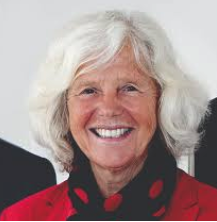 Dr. Verena Kast was Professor of Psychology at the University of Zurich and is a training analyst, supervisor and lecturer at the C.G. Jung, Institute of Zurich, Küsnacht. She is president of the Curatorium. Author of numerous books among others: The Dynamics of Symbols (1990), Father-Daughter, Mother-Son (1994), Letting go and finding yourself (1994). For more information visit her website https://www.verena-kast.ch/.
Dr. Verena Kast was Professor of Psychology at the University of Zurich and is a training analyst, supervisor and lecturer at the C.G. Jung, Institute of Zurich, Küsnacht. She is president of the Curatorium. Author of numerous books among others: The Dynamics of Symbols (1990), Father-Daughter, Mother-Son (1994), Letting go and finding yourself (1994). For more information visit her website https://www.verena-kast.ch/.
18 May 2024: Module 4
Spirituality in Jungian Psychology: theory and practice
Since the 1990’s, clinical psychologists (in the United States, primarily) have carried out a significant amount of research regarding spirituality in clinical practice. Questions that have been raised and addressed in many articles, books and conferences in the last several decades include: What is the difference between religiosity and spirituality? Should questions regarding these matters be addressed in the context of psychotherapeutic practice? Does it make a difference if the therapist has religious commitments or a spiritual attitude?
Jungian psychotherapy has included consideration of the numinous since the days of the founding figures, and many books have been written on this topic. It is still an open question, however, just how important spirituality or numinous experience might be for psychic healing and mental health. According to Jung, it is the numinous experience that overcomes neurosis. This lecture will take a fresh look at this topic and offer some examples of spirituality in practice, both positive and negative.
presented by Dr. Murray Stein
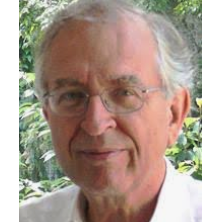 Murray Stein, Ph.D. is a Jungian psychoanalyst practicing in Zurich, Switzerland. He is a former president of the IAAP and is a training and supervising analyst at ISAP Zurich. His books include Jung’s Treatment of Christianity (1985), In MidLife (1983), Jung’s Map of the Soul(1998), Minding the Self (2014), Outside Inside and All Around (2017) and most recently The Bible as a Dream (2018). For more information visit his website http://murraystein.com/.
Murray Stein, Ph.D. is a Jungian psychoanalyst practicing in Zurich, Switzerland. He is a former president of the IAAP and is a training and supervising analyst at ISAP Zurich. His books include Jung’s Treatment of Christianity (1985), In MidLife (1983), Jung’s Map of the Soul(1998), Minding the Self (2014), Outside Inside and All Around (2017) and most recently The Bible as a Dream (2018). For more information visit his website http://murraystein.com/.
SEMESTER: THE THERAPY RELATIONSHIP
6 July 2024: Module 1
The Therapy Relationship and the Goals of the Work
We will talk about some very different approaches to the therapy relationship. These will range from understanding it as an ordinary human relationship, to considering various relational approaches, to discussion of transference-countertransference. Jung’s views on these matters will be discussed and his pioneering status in terms of today’s interest in ‘relationality’ will be highlighted. In addition, the question of what psychotherapy is for, and what its aims and goals might be, will receive attention. We will assume that there is no one single way to enter these matters.
presented by Professor Andrew Samuels
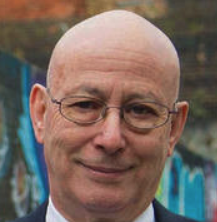 Professor of Analytical Psychology at the University of Essex and a Jungian analyst in practice in London. He has been referred to as ‘the most celebrated of today’s Jungian analysts’ (in American Imago). He is a former Chair of the UK Council for Psychotherapy. His many books have been translated into 21 languages and include the ground-breaking Jung and the Post-Jungians (1985), A Critical Dictionary of Jungian Analysis (1986), The Father: Contemporary Jungian Perspectives (1986), Psychopathology: Contemporary Jungian Perspectives (1989), and Persons, Passions, Politics, Psychotherapy: Selected Works of Andrew Samuels (2015). For more information visit https://www.andrewsamuels.com/.
Professor of Analytical Psychology at the University of Essex and a Jungian analyst in practice in London. He has been referred to as ‘the most celebrated of today’s Jungian analysts’ (in American Imago). He is a former Chair of the UK Council for Psychotherapy. His many books have been translated into 21 languages and include the ground-breaking Jung and the Post-Jungians (1985), A Critical Dictionary of Jungian Analysis (1986), The Father: Contemporary Jungian Perspectives (1986), Psychopathology: Contemporary Jungian Perspectives (1989), and Persons, Passions, Politics, Psychotherapy: Selected Works of Andrew Samuels (2015). For more information visit https://www.andrewsamuels.com/.
Module 2: Live Session - 20 July 2024
The Infant Relationship to Objects and the Inner Landscape
Dr. Austin will discuss two of her papers which were published in the Journal of Analytical Psychology in 2016 entitled “Working with chronic and relentless self- hatred, self-harm and existential shame: a clinical study and reflections” parts I and II. The first of these papers was jointly awarded the JAP’s Fordham Prize for 2016 (see https://thejap.org/the-michael-fordham-prize). These papers explore some of the theoretical and experiential reference points that have emerged in her work with people whose relationship to their body and/or sense of self is dominated by self- hatred and (what Hultberg describes as) existential shame. The first paper focuses on self-hatred and the second paper focuses on shame. The second paper continues the discussion of the clinical material introduced in the first paper in the light of Jung’s and Laplanche’s emphasis on experiences of unresolvable, non-pathological ‘foreignness’ or ‘otherness’ at the heart of the psyche. Images, metaphors, elements of clinical experience, and working hypotheses from a number of analytic traditions are used to flesh out this exploration.
presented by Dr. Sue Austin
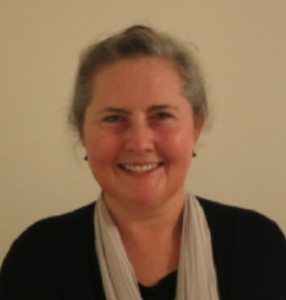 Sue Austin, Ph.D. and member ANZSJA, works in private practice in Sydney and is a training analyst with the Australian and New Zealand Society of Jungian Analysts. She specializes in working with adults who have eating disorders and/or disorders of the self (i.e., people whose experience of subjectivity is abject) and her practice comprises general analytic work with adults and supervision of clinicians in Australia and internationally. Sue has run numerous clinical workshops and seminars in Australia, New Zealand, the UK, Europe and the USA, and has published several clinical papers and a book. http://www.sueaustin.net.au/
Sue Austin, Ph.D. and member ANZSJA, works in private practice in Sydney and is a training analyst with the Australian and New Zealand Society of Jungian Analysts. She specializes in working with adults who have eating disorders and/or disorders of the self (i.e., people whose experience of subjectivity is abject) and her practice comprises general analytic work with adults and supervision of clinicians in Australia and internationally. Sue has run numerous clinical workshops and seminars in Australia, New Zealand, the UK, Europe and the USA, and has published several clinical papers and a book. http://www.sueaustin.net.au/
Module 3 - Lecture August 3, 2024
Interpretation in Jungian Analysis – Art and Technique
The issue of interpretation is fundamental to the process of analysis or any psychology of depth. It is the medium by which our art form is transmitted. If the analytic vessel is thought of as our canvas, then our interpretations are the paints with which the depth psychologist participates with the patient in the creation of the painting. What one chooses to say in analysis, why one chooses that particular thing to say, how one says it, when one says it – these are some of the building blocks of the interpretive process. It is an important tool to develop proficiency with, but it can’t be used effectively if we don’t develop fluency with it.
Learning Objectives
1. Differentiate between an interpretation and other non-interpretive interventions in therapy/analysis.
2. Explore of the origins of the interpretive process within the psychoanalytic world.
3. Differentiate between various levels of interpretation.
4. Examine style of language in interpretation
5. Understand interpretation from a Jungian perspective.
presented by Dr. Mark Winborn

Mark Winborn, PhD is a Jungian psychoanalyst and clinical psychologist. He is a training analyst with the Inter-Regional Society of Jungian Analysts and the C.G. Jung Institute Küsnacht. His primary areas of interest are analytic technique and the integration of psychoanalytic theories. He has published or edited five books: Deep Blues: Human Soundscapes for the Archetypal Journey, Shared Realities: Participation Mystique and Beyond, Interpretation in Jungian Analysis: Art and Technique, Beyond Persona: On Individuation and Beginnings with Jungian Analysts (with Lavinia Țânculescu), and Jungian Psychoanalysis: A Contemporary Introduction (part of the Routledge series – Introductions to Contemporary Psychoanalysis), as well as numerous articles and book chapters. He received the Gradiva prize from the National Association for the Advancement of Psychoanalysis for the best article published in 2022 and was a finalist in 2014 for the best edited book in psychoanalysis. He lectures widely both in the USA and internationally.
Module 4 (Lecture, 17 August 2024)
Ego, Shadow and the Four Stages of Transformation
The confrontation with the shadow: personally, collectively and archetypally is the first stage and keystone of the journey to consciousness, wholeness and in Jung’s terms, individuation. This module will focus on identifying, unmasking and engaging with the subject’s shadow material, both in its personal and subjective aspect and in its collective constellation in the therapeutic setting. This module will consider the definitions and roles of both the ego and the shadow and their dialectical relationship in Jungian analysis. We will look at questions of when and where the ego is functional and where it is inhibiting the subject’s individuation process.
We will consider how engagement with the shadow can break an ego deadlock and potentially fertilise the subject’s identity and individuation process, and where such engagement may be overwhelming for the ego. Once identified, Jung provides a four-step process for engaging and redeeming or transmuting shadow material: confession, elucidation, education and transformation. These steps mirroring the four alchemical stages of transmutation: Nigredo, Albedo, Citrinitas and Rubedo. We will consider each of these stages in detail and their practical application in therapy.
presented by Stephen Farah
 Stephen Farah, MA, is the co-founder and head of learning and research at The Centre for Applied Jungian Studies South Africa. He is an executive member of the International Association of Jungian Studies. Stephen holds an honours degree in analytical philosophy from the University of the Witwatersrand and a Master’s degree in Jungian and Post Jungian Studies from the University of Essex. Stephen’s areas of interest include psychoanalysis, film, the philosophy of language, consciousness, individuation and the simulation hypothesis. His paper ‘True detective and Jung’s four steps of transformation’ was published in The Routledge International Handbook of Jungian Film Studies. He is currently compiling and editing (with co-editor Marybeth Carter) an anthology of papers for ‘The Specter of the Other: crises and opportunity‘.
Stephen Farah, MA, is the co-founder and head of learning and research at The Centre for Applied Jungian Studies South Africa. He is an executive member of the International Association of Jungian Studies. Stephen holds an honours degree in analytical philosophy from the University of the Witwatersrand and a Master’s degree in Jungian and Post Jungian Studies from the University of Essex. Stephen’s areas of interest include psychoanalysis, film, the philosophy of language, consciousness, individuation and the simulation hypothesis. His paper ‘True detective and Jung’s four steps of transformation’ was published in The Routledge International Handbook of Jungian Film Studies. He is currently compiling and editing (with co-editor Marybeth Carter) an anthology of papers for ‘The Specter of the Other: crises and opportunity‘.
SEMESTER: ARCHETYPES AND INDIVIDUATION
Module 1, Live Lecture: 5 October 2024
Individuaton: Jungian Clinical Reflections
Jung’s experience as a child of having ‘two personalities’ impacted the development of analytical psychology in numerous ways, but its most important influence was upon the emergence of Jung’s notion of individuation. Individuation, the central notion of analytical psychology, is all about the avoidance of one-sidedness. Through the operation of the ‘transcendent function’ Jung saw individuation as a way to transform creatively in the direction of wholeness.
In his later psychology in particular, Jung became particularly interested in utilising these ideas to overcome the dominant Cartesian split within modern consciousness, and specifically the dichotomy between the psychological dimensions of interiority and exteriority. The three arenas in which he was able to explore this question at the greatest depth were Transference/Countertransference, Alchemy and Synchronicity. It was his research into these three topics that enabled Jung to extend the notion of psyche beyond the individual and to put into question the subject/object divide. My goal in this seminar is to explore Jung’s notion of the extended psyche through a clinical lens. I want to look at how individuation shows up within the analytic vessel and particularly through the trans-subjective energetic field that Jung called “the third”. My aim is to show how a Jungian approach to these clinical questions differs from, for example, the psychoanalytic approach. I will then go on to explore the possibility that these ideas of Jung offer an opening toward the psychosocial, potentially enabling us to make an authentically Jungian contribution to political and social questions.
presented by Dr. Mark Saban
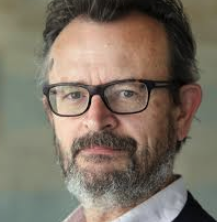 Mark Saban, P.h.D, is a senior Jungian analyst (a member of the Independent Group of Analytical Psychologists) and a lecturer in Jungian and post-Jungian studies in the Department of Psychosocial and Psychoanalytic Studies, Essex University. He recently co-edited Analysis and Activism – Social and Political Contributions of Jungian Psychology, Ed. Emilija Kiehl, Mark Saban, & Andrew Samuels (Routledge) 2016 (Finalist American Board and Academy of Psychoanalysis Book Prize, Nominated Gradiva Award for Best Edited Book). Recent articles include, Jung, Winnicott and the divided psyche, Journal of Analytical Psychology, 2016, 61, 3, 329–349 and Secrete e Bugie. Un’area cieca nella psycologia junghiana, Rivista di psicologia analitica, 2017, n. 43 Volume 95.His website http://www.marksaban.co.uk/.
Mark Saban, P.h.D, is a senior Jungian analyst (a member of the Independent Group of Analytical Psychologists) and a lecturer in Jungian and post-Jungian studies in the Department of Psychosocial and Psychoanalytic Studies, Essex University. He recently co-edited Analysis and Activism – Social and Political Contributions of Jungian Psychology, Ed. Emilija Kiehl, Mark Saban, & Andrew Samuels (Routledge) 2016 (Finalist American Board and Academy of Psychoanalysis Book Prize, Nominated Gradiva Award for Best Edited Book). Recent articles include, Jung, Winnicott and the divided psyche, Journal of Analytical Psychology, 2016, 61, 3, 329–349 and Secrete e Bugie. Un’area cieca nella psycologia junghiana, Rivista di psicologia analitica, 2017, n. 43 Volume 95.His website http://www.marksaban.co.uk/.
Module 1 – Bonus Lecture
Archetypes and the Collective Unconscious
This bonus lecture by Dr. Mark Saban addresses the place of Archetypes and the Collective unconscious in Jung’s psychology, with a particular focus on clinical applications of these concepts. In the first part of the seminar Dr. Saban outlines Jung’s ideas about archetypes and the role they play within his overall psychology, then he moves onto various critical approaches to the archetype that have arisen in post-Jungian literature. With these critiques in mind, Dr. Saban will then move onto the ways archetypes show up in clinical practice and how archetypal theory can inform work with patients, with a particular emphasis upon the experiential dimension of the archetype and its relation to dream, complex, and symptom.
Note – Mark Saban will take questions related to this bonus lecture during his live new lecture and discussion on October 5, 2024.
Module 2, Live Lecture: 19 October 2024
Theatres of Individuation
This module explores the meaning of individuation through stage representations of crisis and transformation. Individuation is a central idea in Jungian psychology. The project of developing and integrating one’s self over the course of a lifetime is rarely explored in other schools of depth psychology; we will consider some of the meanings and opportunities that open out from this idea.
I will use scenes from opera, music theatre, and film to explore individuation as it appears in different characters and narratives. We will see how staged symbols connect unconscious archetypal material with ego consciousness in ways that support and direct various processes. The amplified images, patterned situations, and articulated emotions of screen and stage works are designed to reflect not merely our desires, but all the things that engage us, positive and negative. We use these materials to dream ourselves through the joys and disasters that make up our lives, opening up unexpected possibilities for our own individuation.
presented by Dr. Paul Attinello
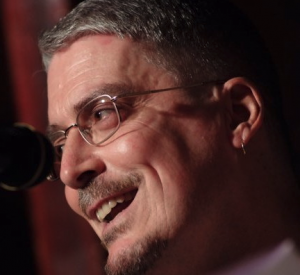 Paul Attinello is a diplomate analyst who studied at the C. G. Jung-Institut in Zürich, as well as a senior lecturer at Newcastle University. He has taught at the University of Hong Kong and as a guest professor at UCLA, received his PhD from UCLA, and has lived and worked on four continents. He has published in a number of journals, collections and reference works on contemporary musics, HIV/AIDS, and cultural, philosophical and psychological topics.
Paul Attinello is a diplomate analyst who studied at the C. G. Jung-Institut in Zürich, as well as a senior lecturer at Newcastle University. He has taught at the University of Hong Kong and as a guest professor at UCLA, received his PhD from UCLA, and has lived and worked on four continents. He has published in a number of journals, collections and reference works on contemporary musics, HIV/AIDS, and cultural, philosophical and psychological topics.
2 November 2024: Module 3
Cultural Complexes in the Life of Individuals, Groups and Nation States
Cultural Complexes are ubiquitous in the psyches of individuals and groups. Their deep and unconscious effects can be enormously destructive as well as provide a strong sense of identity. This lecture will explore the notion of cultural complexes and how they live inside us as individuals, as members of groups, and as citizens of nation states. The lecture is based on a series of articles and books that I have written and edited over the past two decades that have focused on complexes in Australia, Latin America, Europe, Southeast Asia and the United States. The initial part of the lecture will provide a history of the development of the idea in the Jungian tradition and a working definition of the concept through elucidating its characteristics. We will then explore the notion through examples both in individuals and in large groups. In the context of unfolding events in Russia, the Ukraine, and the response of the rest of the world, we will work together to see how the concept of cultural complexes may shed some light on this current world crisis.
presented by Thomas Singer M.D.
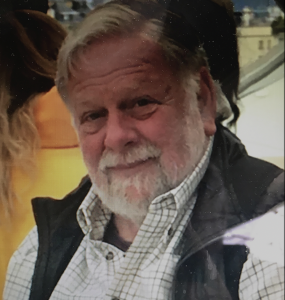 Thomas Singer, MD is a psychiatrist and Jungian psychoanalyst who trained at Yale Medical School, Dartmouth Medical School, and the C.G. Jung Institute of San Francisco. He is the author and editor of many articles and books, including a series of books on cultural complexes in Australia, Latin America, Europe, Southeast Asia, and the United States. Cultural Complexes and the Soul of America won the IAJS award for Best Edited Book of 2020. In addition, Dr. Singer has co-edited a series of books on Ancient Greece/Modern Psyche. He serves on the Board of ARAS (Archive for Research into Archetypal Symbolism) and has edited ARAS Connections for many years.
Thomas Singer, MD is a psychiatrist and Jungian psychoanalyst who trained at Yale Medical School, Dartmouth Medical School, and the C.G. Jung Institute of San Francisco. He is the author and editor of many articles and books, including a series of books on cultural complexes in Australia, Latin America, Europe, Southeast Asia, and the United States. Cultural Complexes and the Soul of America won the IAJS award for Best Edited Book of 2020. In addition, Dr. Singer has co-edited a series of books on Ancient Greece/Modern Psyche. He serves on the Board of ARAS (Archive for Research into Archetypal Symbolism) and has edited ARAS Connections for many years.
16 November 2024: Module 4
Race and Class in Analysis (Cultural Complexes)
Race and Class permeate every aspect of our lives. These linked matters will be explored both clinically and more generally from a post-Jungian perspective. They will be seen as part of an intersectional approach which encompasses our varying cultural influences.
My aim is to invoke an open atmosphere in which we can all be free to fail, or say things which feel uncomfortable so that we can explore these issues without feeling self-conscious or frozen by guilt or fear. Racism and class prejudice are forms of hatred which we can all fall into at times. He who casts the first stone….
These topics inevitably touch on the topic of refugees. More pertinent than ever during this alarming period of warring conflict in Ukraine, it is useful to remember these words:
“Every American who ever lived, with the exception of one group, was either an immigrant himself or descendent of immigrants” (from JFK, A Nation of Immigrants. HarperCollins 1964).
presented by Ruth Williams, MA
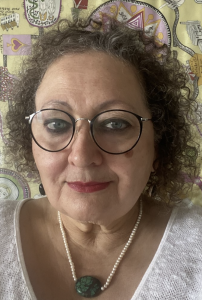 Ruth Williams is a Training and Supervising Analyst at the Association of Jungian Analysts in London. She is the author of Jung: The Basics (2019 Routledge) and Exploring Spirituality from a Post-Jungian Perspective: Clinical and Personal Reflections (Routledge forthcoming 2023). See: www.RuthWilliams.org.uk.
Ruth Williams is a Training and Supervising Analyst at the Association of Jungian Analysts in London. She is the author of Jung: The Basics (2019 Routledge) and Exploring Spirituality from a Post-Jungian Perspective: Clinical and Personal Reflections (Routledge forthcoming 2023). See: www.RuthWilliams.org.uk.


